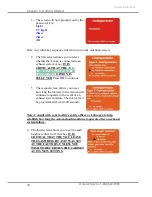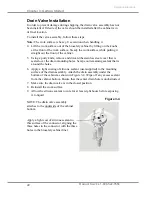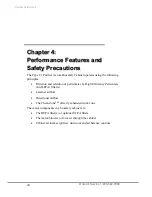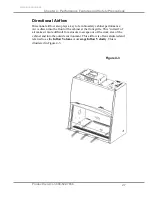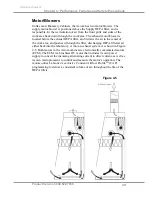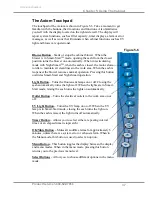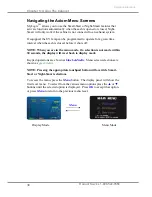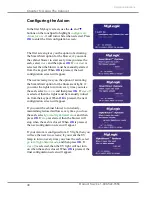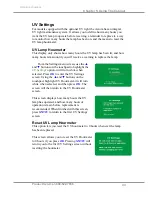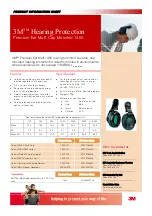
Chapter 4: Performance Features and Safety Precautions
Product Service 1-800-522-7658
30
Original instructions
Cabinet Air Intakes (Grilles)
The location, size, and pattern of the grilles in the work area affect cabinet
containment and performance.
Note:
Do not block or obstruct the grilles of the biosafety cabinet.
Ultraviolet (UV) Lamp
The optional UV lamp generates a primary wavelength of light of 254nm. A
secondary emission is in the visible (blue) wavelength, resulting in the
characteristic blue color while operating. UV light at this wavelength is
biocidal, primarily by creating thymine dimers in DNA. These dimers
prevent the correct transcription of the DNA into RNA, resulting in cellular
death or viral inactivation. In order to be effective, the UV light must directly
strike the nucleic acid, and its effectiveness can be diminished or negated by
dissolved proteins or metals, or by other UV-opaque substances protecting
the target nucleic acid.
Because of its limitations, UV light should be used as an adjunct to good
surface disinfection practices. In order to get optimum performance from the
UV light, it should be replaced after 6,000 hours of operation or less, and the
exterior surface of the lamp should be kept clean and free of dust.
Note:
The Axiom records the number of hours of operation of the UV light.
You can program in the number of hours (in 100-hour increments) it will
operate before a replacement message is displayed.
Note:
UV irradiation is absorbed by the tempered safety glass of the sash.
Independent research has shown that the level of UV irradiation on the
outside of the cabinet’s sash is equal to background radiation levels.
Note:
The UV sensitivity of a target organism varies, depending on the UV
output of the lamp, the genus and species of the organism, the medium the
agent is suspended in, etc. Contact the Health and Safety Officer at your
facility for UV light use and recommendations.

